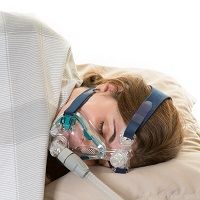Article
Sleep Apnea Surgery: A Remedy for Childhood Asthma?
Author(s):
Surgery to treat obstructive sleep apnea (OSA), which entails tonsil and adenoid removal, also improved asthma in affected children, research suggested.

Surgery to treat obstructive sleep apnea (OSA), which entails tonsil and adenoid removal, also improved asthma in affected children, research suggested.
University of Chicago (UC) investigators examined the records of 13,506 asthmatic children who underwent adenotonsillectomy (AT) from 2003-2010. Investigators looked for outcomes involving acute asthma exacerbation (AAE), acute status asthmaticus (ASA), temporal changes in asthma medication prescriptions,frequency of asthma-related emergency room visits (AREAs), and asthma-related hospitalizations (ARHs), and compared those occurrences to incidents and medications taken a year before their AT.
Within the first year of their procedure, the authors found AT patients’ ARHs decreased 36% along with a 26% drop in AREAs. Children who did not undergo the procedure did not have a notable reduction or increase in their symptoms.
For AT patients who experience ASA — severe asthma attacks that do not respond to repeated treatments – their episodes dropped fell 38% in the first year, compared to a 7% drop in incidents among non-AT patients. Moreover, AAE incidents dropped 30% in the year after surgery, compared to a 2% for children without surgery.
In light of their findings, the investigators claimed their study pinpointed AT as a treatment for asthma and identified OSA as an aggravating factor for asthmatic symptoms. However, they cautioned that additional research is needed to craft guidelines which will identify asthmatic children at risk of developing OSA and ones likely to benefit from AT.
"Our study adds weight to the growing sense that obstructive sleep apnea aggravates asthma and further tips the balance toward early identification of obstructive sleep apnea," the study's lead author, Rakesh Bhattacharjee, MD, an assistant professor of pediatrics at UC said. "This will help physicians advocate for surgical intervention, not just to eradicate sleep-disordered breathing, but also to reduce asthma severity and decrease reliance on medications in asthmatic children."


